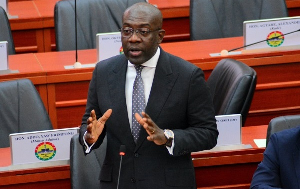Last year, the closed season for fishing in the country was implemented in May and June (2019) - which caused some angst for the Scientific and Technical Working Group (STWG) of the fisheries sector, as they emphasized the need for government to stick to observing the fishing closed season in the month of August.
According to STWG, the month of August is the peak period for fish to breed and produce more to address the dwindling stock of fish in the nation's marine waters.
STWG was formed as an ad hoc committee in 2015 as part of implementing the Sustainable Fisheries Management Project (SFMP) to provide science-based management advice and ensure long-term sustainability of fish stock.
It appears that lessons have been learnt, as the 2020 fishing closed season is likely to be observed from July to August this year instead of May-June. We congratulate officials of the Fisheries Commission for instituting the right period to observe the fishing closed season.
A meeting hosted by the Ministry of Fisheries and Aquaculture Development this week backed the Scientific and Technical Working Group's proposal of July-August as the best period to observe the closed season by all fleets for maximum impact.
Elizabeth Afoley Quaye, Minister for Fisheries and Aquaculture Development said, the ministry is willing to work with the Scientific Community to ensure that the right things are done. This is a relief, because it's why STWG was formed: to provide the science-based management of the sector.
Particularly so when NFAG, the Apex fisheries body, is also prepared to support the Sector ministry in ensuring that fishing is done right. Declining catches of small pelagic fish and fish stock assessments in Ghana's marine waters show that there is an imminent risk of stock depletion.
Hence the institution of a closed season to allow for breeding, so that more fish can be produced for the country's protein requirements since fish is widely consumed in the country.
Declining fish catches and increasing reliance on imports are creating a growing fish-trade gap; affecting incomes, increasing poverty and inducing a decline of nutritional well-being among Ghana's fishing communities.
Weak implementation of the National Fisheries Management Plan has made it impossible to reverse the declining trends in fish stock levels; thus the need to institute a 'closed' season. It is for betterment of the fisheries sector, and we should all embrace it.
Business News of Thursday, 6 February 2020
Source: Business & Financial Times













